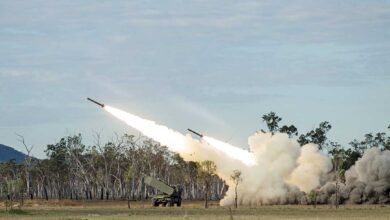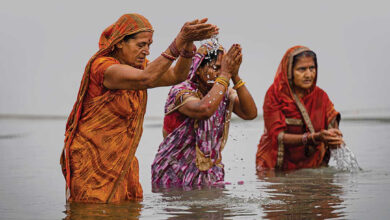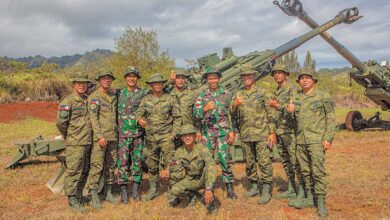Indoctrinating the Chinese Military

China’s People’s Liberation Army Turns Toward Propagandist Roots, Party Ideology
China’s People’s Liberation Army (PLA) is undergoing a significant transformation, the most thorough in its 91 years of existence. Virtually all parts of the PLA are experiencing changes, with the goal of modernizing the force according to world standards. While great strides have been made in technological advancement, a re-emphasis on political and ideological indoctrination of PLA officers and enlistees has also occurred. Such initiatives have profound effects on the minds of individuals who make up the world’s largest military. This article seeks to answer the following questions:
- What is the guiding philosophy behind the mass indoctrination of the PLA?
- What are the components of the PLA’s “strong military culture?”
- What constitutes a “four haves soldier?”
- What specific steps have been taken to indoctrinate the military?
- What are the pluses and minuses of the refocus on political indoctrination?
Chinese President Xi Jinping has gradually consolidated power since 2012, making him the most powerful Chinese leader since Mao Zedong. Following Chinese communist traditions, Xi Jinping thought has been elevated to the level of official state ideology. Thus, it is unsurprising that his line of thinking on defense, the so-called Xi Jinping thought on strengthening the military, dominates PLA reforms.
In Xi’s view, China is facing profound danger, both from internal and external enemies. On the international stage, the rise of China has made the U.S. more alert than ever, and Washington has taken a range of measures to counteract the growing influence of Beijing. In addition, the intensification of regional conflicts poses further challenges to China’s territorial integrity, including the resurgence of Taiwan’s Democratic Progressive Party, the menace of domestic terrorism and separatism, as well as corruption within the Chinese military that threatens the very foundation of the PLA.

Under such conditions, Xi has called for a return to the PLA’s fundamentals — a highly disciplined army under the Chinese Communist Party’s (CCP) absolute leadership that is capable of winning wars — harkening back to the early Red Army led by Mao.
There are three principles to Xi’s expectations of the Chinese military — obey the party’s commands, prepare to win wars and maintain good conduct. Plastered across all barracks in China, these ideas are simple and straightforward. First, the PLA must obey the party’s command because, unlike the military of a Western democracy, the PLA belongs to the CCP, not the state. Its task is to defend the party’s interest above all else. The CCP came to power through a prolonged armed struggle, and it understands the critical importance of keeping power with the assistance of the military. Therefore, the party will never relinquish its control of the PLA, and service members must not deviate from the party’s absolute command. Chinese political and military leaders believe that conflict between the PLA and the CCP will inevitably lead to the downfall of the state, just like what happened in the Soviet Union. Therefore, the first principle of Xi’s thought on the military is for the PLA to obey all orders from the party.
Besides adhering to “correct” politics, the PLA must be prepared to fight and win wars. In a time of great change, the PLA must train hard and stand strong in defending national interests. In the past, the PLA has expanded capabilities in cyber, electronic warfare, space, and conducting joint operations while proclaiming new technological achievements in areas such as artificial intelligence, hypersonic glide vehicles, high-power microwave weapons, laser weapons, satellite navigation, unmanned aerial vehicles and quantum communications. Such progress will be of enormous benefit for the PLA if a conflict does break out in the future.
Third, the PLA must maintain good conduct, strictly following regulations and law. The breakdown of order in any institution is an awful development. While in the past the PLA was run like a badly managed state-owned enterprise, much has changed since Xi took over. The anti-corruption campaign in the PLA has netted a long list of middle- and high-ranking officials while striking fear into the hearts of many others.
Yet, besides the big stick, the military leadership also seeks to promote revolutionary values to service members, reminding them that the PLA is an army of the people. As a matter of fact, advocating a “strong military culture” is high on Xi’s agenda, because culture permeates all levels of a military and has a strong influence on how soldiers behave.

Xi’s notion of a strong military culture is a mixture of the so-called red military culture and traditional military ethics. Red military culture stems from the CCP’s and PLA’s joint revolutionary experience from near extinction at the hands of the Kuomintang forces to conquering the whole of China. “Red values” such as bravery, sacrifice, loyalty, perseverance and fearlessness are often emphasized. Likewise, “red institutions,” such as the political commissars’ system, and obedience to the party are highlighted.
Traditional military ethics, or wude, is a concept that can be traced back to ancient times. There are three core principles when it comes to traditional military ethics — loyalty, bravery and strictness. Loyalty must be dedicated to the country and duty. With regard to bravery, one must sacrifice for the greater good and must be witty, not stubborn, in applying one’s braveness. When it comes to being strict, one must be strict to all — one’s self, peers and subordinates.
With that being said, Xi specifically outlined his expectations to remolding PLA service members into what he calls “four haves soldiers,” meaning they must have spirit, ability, fearlessness and morality. A four haves soldier must have the spirit of a firm believer in communism and the party’s leadership and have the will to oppose any inner desire and outside attempts to subvert that commitment. He must have the ability to shift into combat mode at any time, build his capability in fighting so-called informationized warfare, strengthen the mental preparations for warfighting and be a curious lifelong learner. (Informationized warfare refers to the notion that information technologies, such as capabilities related to command, control, communications, computers, intelligence, surveillance and reconnaissance, are key for military effectiveness).

THE ASSOCIATED PRESS
In his speeches, Xi has repeatedly criticized the devastating effects of “peacetime illness” that eroded service members’ willingness to make the ultimate sacrifice. As a result, a four haves soldier must be brave and fearless. He must be prepared to sacrifice and die for the cause. Last, a four haves soldier must have morality. He must know right from wrong, maintain excellent conduct, obey the law and have high standards in life.
To promote these values and models, the PLA has adopted two general strategies, the raising of role models and everyday political indoctrination. Selecting role models and propagating their heroic deeds is nothing new. In fact, a nationwide movement to “learn from the PLA” in the 1960s created a number of military heroes. Although some have long been forgotten, some, such as Lei Feng, have survived and remain immensely popular in China. However, PLA propagandists have advised against using the same methods from the past. Today’s military heroes should no longer be the stereotype from the 1960s — male, Han Chinese and the embodiment of perfection. More efforts should be expended on finding female, non-Han and imperfect individuals who bettered themselves through struggle and hard work, they argue.
The other indoctrination strategy is that of everyday political education. This encompasses daily activities and initiatives organized to drive home the political message. The PLA Navy’s North Sea Fleet, for example, has implemented a series of measures through cultural and fun group activities. There are regular reading club meetings, film viewings, piano concerts, calligraphy and photography lessons, red song karaoke parties, filmmaking competitions, and CCP, PLA and PLA Navy history competitions, all geared toward creating a four haves sailor identity. In addition, commemoration events for revolutionary martyrs have been organized for similar purposes. Through these efforts, the North Sea Fleet hopes to have a new generation of committed sailors living up to the commander in chief’s standards.
It is obvious that Xi seeks to return the PLA to its roots, to an era in which soldiers are both “red” and “expert.” However, much has changed since the revolutionary war days, and the viability of such a model is doubtful. Taking valuable time away from training for political indoctrination is problematic, especially in a time when more training is needed. Employing hackneyed tactics, albeit powered by traditional and social media, raises questions on the effectiveness of the new propaganda campaign. Yet, the leadership will most likely view indoctrination as necessary, given the importance of keeping the PLA absolutely loyal to the ideology of the new Chinese leader and the CCP. Therefore, it is expected that the PLA will spend more time and effort to produce enlistees and officers equipped with the party’s latest ideological pronouncements.




